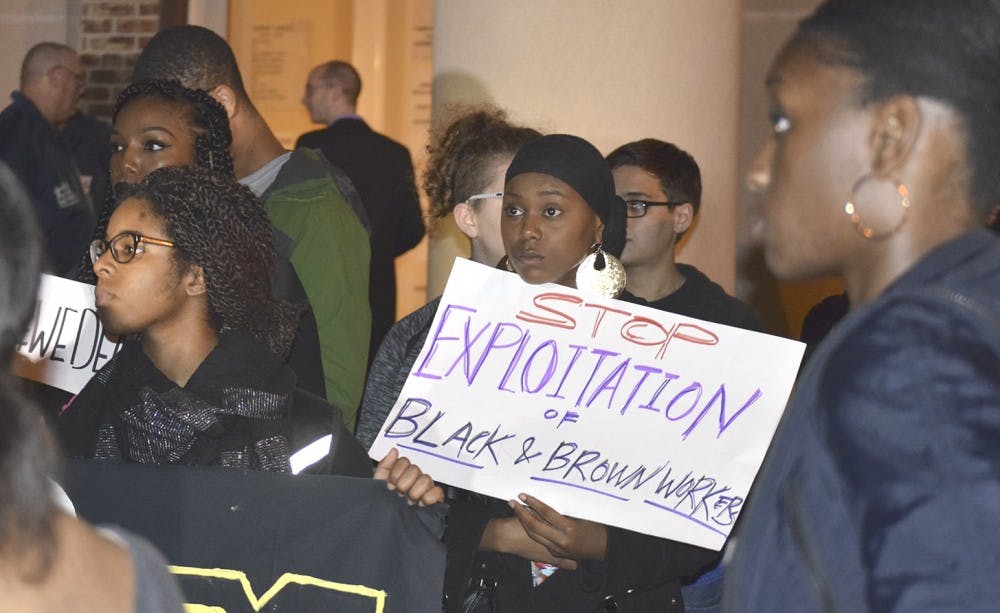In an email Monday night, Chancellor Carol Folt laid out a response to ongoing discussions about UNC’s racial climate, including students’ protests and demands from a town hall meeting in November.
The email proposed actions to “build upon the crucial conversations about race, equity, and inclusion,” including efforts to train University officials about structural racism, create a space for black students on campus, include instruction about diversity at orientation and create a website for resources about race and equity issues, among other efforts.
Rumay Alexander, special assistant to the chancellor, said Folt’s email represents an ongoing and complicated effort to account for dialogue all around campus.
“That just required more conversation and more learning and understanding from all sectors of the community about what’s involved in an issue that’s quite complex and one that didn’t start today and that can’t be completely addressed in a couple of weeks or even in a couple of months,” she said.
Charity Lackey, one of the students present at the November town hall protest, said Folt’s email acted as a response to many student voices on campus, not just to the town hall protesters.
“It has that in mind — not only the rally but campus climate over the past couple of years, just other complaints and other perspectives provided,” Lackey said. “People at the rally weren’t the only people heard. She’s had many conversations — Chancellor Folt — with other groups.”
The email said UNC is taking “first rather than final steps” to address racial issues. One of the University’s goals, Alexander said, is to balance the voices of all student groups calling for change in the racial climate on campus.
Some of the demands made at the rally in November, she said, are not within UNC’s capacity to enact.
“These requests were very, very specific,” she said. “So well-intentioned guidance was given by a number of different groups, including the group that was at this town hall rally. I think after some much-needed discussion and conversation, people began to understand that some of what was being requested was not necessarily something within our control.”




